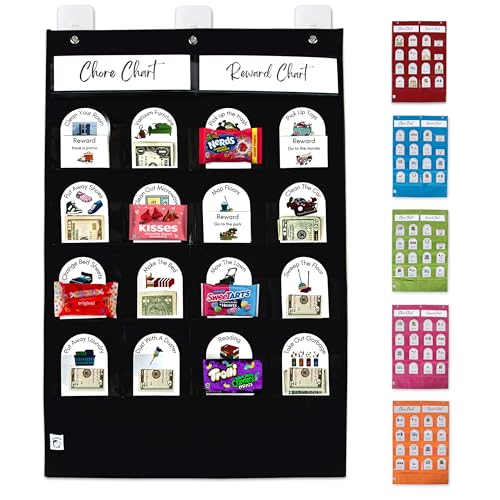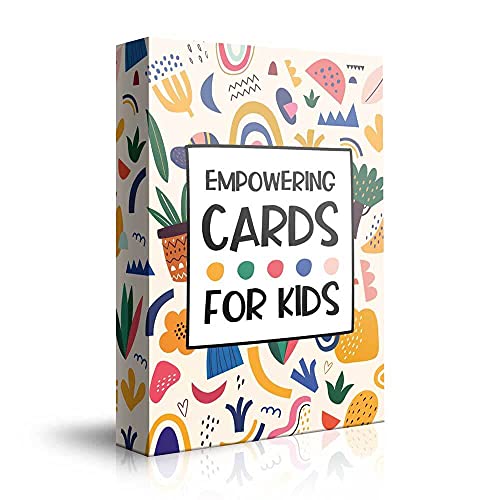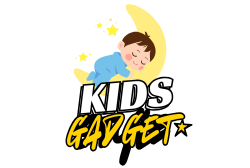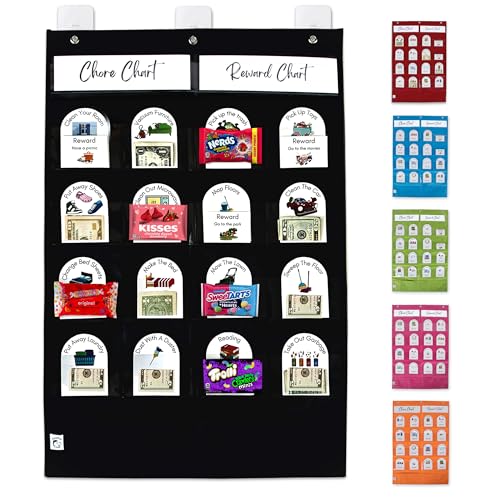Looking for clever ways to instill responsibility, encourage good habits, or spark meaningful conversations with your kids? Forget just handing out pocket money! Today’s “cards for kids allowance” go far beyond simple chore charts, offering innovative ways to manage rewards, foster emotional intelligence, and even boost family bonding. Whether you’re aiming to teach the value of work, encourage self-reflection, or simply get your kids talking, there’s a perfect card system out there.
We know it can be tricky to navigate all the options, so we’ve rounded up the best cards for kids allowance that help parents and kids alike thrive. These aren’t just about financial allowance; they’re about giving your child an “allowance” of growth, learning, and connection. Let’s dive in!
What to Look For in Kids’ Allowance Cards
When picking the ideal card system, consider your family’s unique needs and your child’s age. Are you focused on:
- Chore & Reward Management? Look for clear, visual systems that motivate kids to complete tasks.
- Communication & Connection? Conversation starters can be fantastic for family time.
- Emotional Development & Mindfulness? Cards designed to build emotional intelligence are invaluable.
- Customization? The ability to tailor tasks and rewards makes a big difference.
- Durability & Portability? Cards that can withstand little hands and travel well are a bonus.
Now, let’s explore our top picks!
Chore/Reward Chart for Kids

This isn’t your grandma’s chore chart! This large, interactive chore and reward chart for kids stands out by providing a highly visual and instantly gratifying system. It’s perfect for teaching kids ownership over their tasks and connecting effort directly to rewards. The clear, see-through pockets keep children engaged and focused, making the allowance system transparent and exciting. It’s an excellent tool for building confidence and instilling positive habits from a young age.
-
Key Features:
- Large 30”x20” chart with 16 spacious pockets for visual tracking.
- Includes 50 printed and 16 blank customizable chore cards.
- Comes with 4 printed and 16 blank reward cards for instant gratification.
- Dry-erase marker and 3 wall mounts included for easy setup.
- Designed as a daily visual schedule, beneficial for kids with ADHD.
- Encourages positive habits, responsibility, and essential life skills.
-
Pros:
- Highly customizable to suit individual child’s needs and evolving responsibilities.
- Promotes instant gratification, keeping younger children engaged and motivated.
- Teaches kids valuable life skills and encourages taking ownership of tasks.
- Visual nature is great for all children, especially visual learners and those with ADHD.
- Comprehensive kit includes everything needed to start immediately.
-
Cons:
- Requires a dedicated wall space for display.
- Initial setup time needed to customize tasks and rewards.
- Some children might outgrow the physical chart as they get older.
-
User Impressions: Parents absolutely love how this chart transforms daily routines into fun challenges. Many report a significant decrease in reminders needed and an increase in their children’s willingness to complete chores, attributing it to the clear visual structure and immediate rewards. It’s often praised for fostering a sense of accomplishment and responsibility.
Conversation Cards for Kids – 400 Convo Starters

Sometimes, the best allowance isn’t money, but quality time and connection! These conversation cards are a fantastic way to bridge communication gaps and make family time truly meaningful. With a massive collection of 400 questions, they ensure you’ll never run out of things to talk about, making your child feel like the center of attention. They’re super portable too, making them an ideal companion for road trips, dinner time, or just a cozy evening in.
-
Key Features:
- Contains 400 unique, thought-provoking questions to spark dialogue.
- Small (2.5″x1.75″) and double-sided for convenience and portability.
- Durable design, perfect for on-the-go family activities like car rides.
- Aimed at parents and kids aged 6-12+, fostering engagement and empowerment.
- Encourages active listening, storytelling, sharing, and social-emotional learning.
-
Pros:
- Helps build stronger family connections through shared conversations.
- Provides an easy solution for parents struggling to initiate discussion.
- Promotes critical thinking and allows children to express themselves freely.
- Excellent screen-time alternative for travel or quiet moments.
- Suitable for a wide age range, offering long-term usability.
-
Cons:
- May not immediately engage extremely shy or reticent children without gentle encouragement.
- Some questions might be too simplistic for older teens who prefer deeper topics.
- Requires active participation from parents to facilitate the conversations.
-
User Impressions: Families rave about how these cards open up surprising and insightful discussions. Parents are often amazed at what they learn about their children, describing them as a “lifesaver” for long journeys or for breaking the dinner table silence. They are highly recommended for fostering deeper understanding and connection.
BayWel – 100 Mindfulness Conversation Starter Cards

In a fast-paced world, an allowance of peace and self-awareness is invaluable. These BayWel mindfulness cards are specially designed to encourage meaningful discussions around feelings, gratitude, imagination, and focus. They stand out by promoting emotional well-being and resilience, offering positive affirmations that support kids (and adults!) in navigating their internal world. They’re not just for families; they’re a fantastic resource for classrooms and counselors too.
-
Key Features:
- Includes 99 engaging prompts and 1 instruction card for mindful conversations.
- Supports emotional well-being, self-awareness, and resilience for kids 8+.
- Categorized into 7 thoughtful areas: Focus, Expression, Emotion, Sense, Mindfulness, Questions, and Gratitude.
- Kid-friendly and portable 4″x3″ design, easy to handle and travel with.
- Perfect for family discussions, therapy sessions, group activities, or one-on-one chats.
-
Pros:
- Teaches essential mindfulness practices and emotional literacy from an early age.
- Promotes self-care and positive affirmations, boosting self-esteem.
- Versatile tool for parents, teachers, and child therapists.
- The categorized prompts make it easy to target specific developmental areas.
- Durable and compact, making them convenient for various settings.
-
Cons:
- The focus on mindfulness might be less appealing to children who prefer more active games.
- Aimed at ages 8+, potentially excluding younger children.
- Fewer total cards compared to some conversation card sets.
-
User Impressions: Therapists and parents highly recommend these cards for helping children articulate their feelings and practice gratitude. Users appreciate their gentle approach to sensitive topics, finding them incredibly effective for improving emotional regulation and fostering a positive mindset in kids.
200 Kids Conversation Cards – Get Children to Enjoy…

If you’ve ever struggled to start or sustain a conversation with your child, these 200 Kids Conversation Cards are your secret weapon. What makes them stand out is their expert development in partnership with family therapists and psychologists, ensuring that the questions genuinely foster trust and confidence. They transform mere talk into relationship-building conversations, providing invaluable guidance for parents on how to engage and respond to their children.
-
Key Features:
- 200 exploratory questions tailored for children and parents.
- 5 expertly written categories: ‘School’, ‘Home & Family’, ‘Personal Well-Being’, ‘Future’, and ‘Fun & Random’.
- Developed with family therapists and communication experts for optimal impact.
- Includes bonus cards with specific guidance for parents on participation and sensitive disclosures.
- Made with a professional-grade finish for durability against stains and repeated use.
- Portable deck box for easy storage and travel.
-
Pros:
- Significantly improves parent-child communication and strengthens relationships.
- Helps children, including shy ones, share their thoughts and perspectives confidently.
- Expert-backed design ensures meaningful and age-appropriate discussions.
- Durable and portable, perfect for family dinners or long trips.
- Provides practical tips for parents to navigate conversations effectively.
-
Cons:
- Requires active parental engagement to maximize benefits.
- While non-competitive, some kids might initially perceive it as a structured activity rather than a spontaneous game.
- The depth of questions might vary, with some being more surface-level than others.
-
User Impressions: Parents frequently highlight the surprising depth of conversations these cards facilitate, even with children who are typically quiet. The inclusion of parent guidance cards is particularly appreciated, making users feel more equipped to handle various responses. Many describe them as an essential tool for family bonding and understanding.
Empowering Cards for Kids – Teaches Mindfulness,…

Give your children the “allowance” of inner strength and resilience with these Empowering Cards. Developed by a team with over 25 years of experience in psychology and mindfulness, these cards offer a unique blend of exercises to educate kids about feelings, kindness, and coping strategies. They truly stand out for their holistic approach to child empowerment, guiding kids through mindfulness, meditation, and positive affirmations in an accessible way.
-
Key Features:
- 50 empowerment cards developed by psychology and mindfulness experts.
- Divided into 5 fundamental categories: Self Esteem, Self Compassion, Relaxation, Encouragement, and Mindfulness.
- Each category offers 10 unique exercises for empowerment and calming the mind.
- Comes in a beautifully designed box, perfect for kids and teens.
- Versatile for use by kids, teens, parents, school counselors, and therapists.
-
Pros:
- Teaches critical life skills like stress management, emotional regulation, and self-compassion.
- Expertly designed by professionals, ensuring effective and age-appropriate content.
- Promotes positive self-esteem and a mindful approach to challenges.
- Highly versatile, serving as a tool for personal growth, therapy, or classroom activities.
- Encourages kids to identify and understand their feelings early on.
-
Cons:
- With 50 cards, it offers fewer prompts than some other conversation card sets.
- May require some parental guidance, especially for younger children, to fully grasp the concepts.
- The abstract nature of mindfulness might be a challenge for very literal thinkers.
-
User Impressions: Users consistently praise these cards for their tangible impact on children’s emotional well-being. Parents and educators report that the cards effectively help kids cope with stress, build confidence, and develop a more positive self-image. They are highly regarded as a valuable resource for fostering inner peace and resilience.
Conclusion
Choosing the best cards for kids allowance goes beyond just money; it’s about investing in their growth, responsibility, and emotional intelligence. Whether you opt for a vibrant chore chart to manage tasks and rewards, or a set of thought-provoking conversation starters to deepen family bonds, these tools can make a significant difference. By incorporating these innovative card systems, you’re not just giving an allowance; you’re providing opportunities for learning, connection, and empowerment that will serve your children well into the future. Pick the set that best aligns with your family’s goals, and watch your kids flourish!
FAQ Section
Q1: What exactly are “cards for kids allowance” in this context?
A1: In this article, “cards for kids allowance” refers to various card-based systems designed to help parents manage children’s development. This can include physical chore and reward charts, conversation starter cards to improve communication, and mindfulness/empowerment cards to foster emotional intelligence, rather than just financial debit cards for allowance.
Q2: How can these cards help teach kids responsibility?
A2: Chore and reward charts directly teach responsibility by linking tasks to rewards, helping kids understand the value of work and contribution. Conversation and mindfulness cards indirectly teach responsibility by fostering self-awareness, emotional regulation, and the ability to contribute thoughtfully to discussions.
Q3: Are these cards suitable for all age groups?
A3: The suitability depends on the specific card set. Chore charts are often great for younger kids (toddlers to early teens), while conversation and mindfulness cards typically have age recommendations ranging from 6+ to teens, as they require a certain level of comprehension and communication skills. Always check the product’s recommended age range.
Q4: How can I integrate these cards into our family routine?
A4: For chore charts, display them prominently and review tasks and rewards daily or weekly. For conversation cards, use them during dedicated family times like dinner, car rides, or bedtime. Mindfulness cards can be used as part of a quiet time routine, before bed, or during moments of stress. Consistency is key!
Q5: What’s the difference between a chore chart and conversation cards?
A5: A chore chart is primarily a visual system for assigning tasks and tracking their completion to earn rewards, focusing on building habits and responsibility. Conversation cards, on the other hand, are designed to spark dialogue, encourage communication, and foster deeper emotional connection and understanding within the family.
Q6: Can these cards replace a financial allowance?
A6: While some chore charts can be used to earn monetary rewards, the conversation and mindfulness cards are not intended to replace a financial allowance. Instead, they complement it by focusing on other crucial aspects of child development like emotional intelligence, communication skills, and personal growth, which are just as valuable as financial literacy.
Q7: How do I choose the best cards for my child?
A7: Consider your child’s age, your family’s current needs, and what areas you want to focus on. If you’re struggling with chores, a reward chart is a great start. If you want to talk more, conversation cards are ideal. If emotional regulation is a focus, mindfulness cards would be best. You can also combine different types for a holistic approach.

